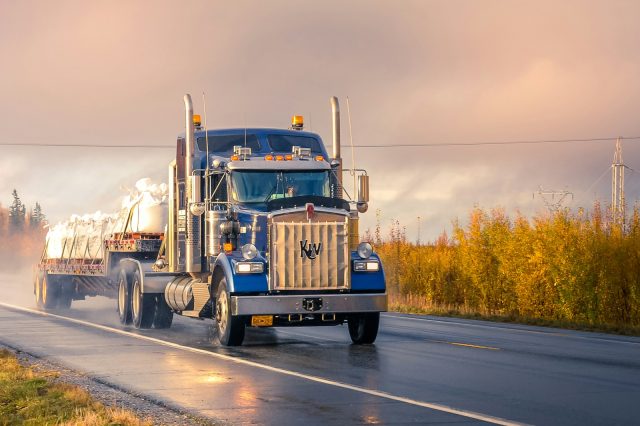
When a large commercial truck is involved in an accident, the results are often devastating. Victims may face catastrophic injuries, extensive property damage, and overwhelming financial losses. But in the aftermath, one of the most important questions becomes: who is legally responsible for the truck accident?
Negligence is the foundation of most personal injury claims involving truck accidents, and understanding how it works for both drivers and trucking companies helps explain why these cases can be complex.
The Basics of Negligence
Negligence occurs when someone fails to act with the level of care that a reasonable person, or in this case, a professional driver or company, would exercise under similar circumstances. To establish negligence in a truck accident case, four elements must generally be proven:
- The driver or company owed a duty of care.
- They breached that duty by acting unreasonably.
- The breach caused the accident.
- The accident resulted in damages, such as injuries or financial losses.
Truck accident cases often involve multiple layers of negligence, which can include both the driver and the company that employs or contracts with them.
Negligence by Truck Drivers
Truck drivers are held to high standards because of the dangers their vehicles pose. Examples of driver negligence include driving while fatigued, despite hours-of-service regulations, speeding, especially when carrying heavy loads, distracted driving, such as using a phone or onboard device, driving under the influence of alcohol or drugs, or failing to inspect the truck before a trip.
Because professional drivers are trained and licensed, courts often expect them to exercise more caution than ordinary motorists. When they fall short, they can be held personally liable for accidents that result.
Negligence by Trucking Companies
In many cases, the trucking company itself shares responsibility. Companies can be negligent in several ways:
- Hiring practices, such as employing drivers without proper qualifications or failing to conduct background checks.
- Training, such as not providing adequate instruction on safety procedures or regulations.
- Maintenance, such as skipping or delaying necessary truck inspections and repairs.
- Scheduling, such as pressuring drivers to meet unrealistic deadlines that encourage speeding or skipping rest breaks.
- Compliance, such as ignoring federal regulations set by the Federal Motor Carrier Safety Administration (FMCSA).
Trucking companies are often sued alongside drivers because their business practices create the conditions that lead to accidents.
Vicarious Liability and Employer Responsibility
Even if a company did nothing overtly negligent, it may still be responsible under the principle of vicarious liability. This legal doctrine holds employers accountable for the actions of their employees if the negligence occurred while the employee was performing job duties.
For example, if a truck driver causes a crash while making a scheduled delivery, the company may be liable simply because the driver was acting on its behalf. This makes it easier for injured victims to recover damages, since trucking companies generally have greater financial resources and insurance coverage than individual drivers.
Shared Fault and Comparative Negligence
Not all accidents are entirely the fault of one party. In some cases, courts apply comparative negligence rules, which assign percentages of blame to different parties. For instance, if a passenger car driver made an unsafe lane change but the truck driver was also speeding, both could share liability. Victims may still recover damages under comparative negligence, but the amount may be reduced based on their share of responsibility. These rules vary by state, which adds another layer of complexity to truck accident cases.
The Importance of Evidence
Because truck accident cases often involve multiple potential defendants, gathering strong evidence is essential. Accident reports, driver logs, maintenance records, and black box data from the truck all provide insight into whether negligence played a role. Attorneys also use witness statements, surveillance footage, and expert testimony to establish liability. The complexity of these cases underscores why legal guidance is critical for victims pursuing compensation.
Why Legal Representation Matters
Trucking companies and their insurers often move quickly after an accident to minimize liability. They may send investigators to the crash site, review driver logs, and attempt to shape the narrative before victims even leave the hospital. Having a lawyer levels the playing field, ensuring victims’ rights are protected and evidence is preserved. Attorneys also help navigate federal and state regulations, many of which are specific to the trucking industry. Without this expertise, it’s easy for accident victims to miss key details that could strengthen their claims.
The Bottom Line
Negligence in truck accidents can stem from drivers, companies, or both. Drivers may make dangerous decisions behind the wheel, while companies may fail to maintain safe practices or push employees into risky behavior. In many cases, liability overlaps, creating a web of responsibility that must be carefully untangled. Pursuing fair compensation requires strong evidence, legal expertise, and a persistent approach. With the right support, victims can hold both drivers and trucking companies accountable, ensuring justice and promoting safer practices across the industry.










